Description
Too Loud a Solitude is a book written by Bhumil Herabal.
Herbal, who according to Milan Kundera is the greatest Czech writer, and description of Herbal’s presence in contemporary Czech literature is transformative and revolutionary.
Herabal wrote the tumultuous loneliness during his years of penmanship, which was secretly published in the same years. Herbal, who ends his life after writing this book, draws us into his bustling world like this:
I’ve been in the waste paper business for thirty-five years, and this is my “love story.”
I have been kneading waste books and paper for thirty-five years, and I have become so engrossed in words that I have become one of the encyclopedias, and I have kneaded a dozen of them over the years.
I am a sabbath full of the water of life and the dead, which is enough for me to bend to one side a little so that a flood of beautiful thoughts flows from me.
My teaching has taken place so subconsciously that I do not know which thought is from me and which of my books is derived.
This book is the story of a character named Hanta, whose job is to knead books, bouquets and paintings.
Hanta works all week. The interesting thing about him is that his personality is very different from ordinary workers. He takes exquisite and valuable books home with him and lives with them.
Everywhere in his house, workplace and brain is full of books.
Finally, after thirty-five years of “loving” life with books and words, when it comes to technology and the new age, his efficiency is ignored and he is forced to change jobs by his boss, but….
Despite earning a doctorate in law, Harabal did not use his degree to start a job search and chose what he called insane jobs;
Simple jobs such as labor, peddling and traveling, waste paper and other mundane jobs.
Perhaps it is because of his diverse experiences in his diverse careers that his work gives us a sense of credibility.
The first point of view of the person that Herabal used to tell his story in the book “Lonely” and also the good translation of Mr. Davaei, which caused the purpose of Herabal to be translated into Persian without being manipulated, help the reader to make the book more objective and tangible.
The book is narrated as if Hanta were talking to you.
In some places, I really felt like I was next to Hanta and the question machine.
In this book, Herbal shows everyday life in its simplest form.
Everyday life that Hanta has loved and when it is taken away from her after thirty-five years, she does not know what to do.
In some parts of the book, black satires are used that are full of sorrows that show the game of life and human beings together.
One of the interesting points of the book is the frequent repetition of phrases throughout the story. For example, “It’s been thirty-five years…” is repeated so much that in some places it makes the reader feel thirty-five years old.
Excerpts from the text of the book Too Loud a Solitude
When I read something, I do not actually read it. I put a beautiful sentence in my mouth and drink it like candy, or drink it like liquor, until the thought, like alcohol, dissolves in me, so that it penetrates my heart and flows in my veins, and to the root of every Blood cells reach.
Hegel: An honorable man is never honorable enough and no criminal is a perfect criminal.
My handbag is full of books that I expect to reveal secrets about myself that night that I do not know.
I can allow myself the luxury of being rejected, although I am never rejected, I am only physically alone so that I can live in solitude inhabited by thoughts, because I am a headless eternal person and it seems as if I am eternal. They do not dislike people like me.
Every time I asked the machine in the last step, it was crushing beautiful books with a pressure of twenty atmospheres, I heard the sound of a human skeleton breaking and I felt that I was crushing the skulls and bones of the classics.
Paper, like stale cheese and old wine, is more delicious the older it gets.
Violence does not go unpunished and our aggression constantly hurts our souls.
No, the sky does not know emotion, just as a bipedal human does not smell emotion.
Kant’s Celestial Theory: In the Night Silence, the Absolute Silence of the Night, when the human senses are at rest, the immortal soul, in anonymous language with man, speaks of things that you understand but cannot describe.
Henceforth, progress means regression. True: progress to the origin, that is, regression to the future.
Lao Tzu: To be born means to go out and to die means to come in.
My destiny was to apologize to everyone. I even ask forgiveness from myself for what I was, for the inevitable nature.
I had read the book all my life waiting to receive a sign of care. I had never heard a word from above, but Mancha, who always hated the book, had become something that was destined to be written about, and now it is written with its stone wings. It peaks in its flight.
In part of the book, we read:
One afternoon, the slaughterers brought me a truckload of blood paper and boxes soaked in blood, one box after another, and I could not stand them.
Because it had a nauseating sweet smell that made me feel like a bloody butcher’s apron.
Out of revenge, I piously included Erasmus Tortderdam’s stupidity in the first package, Friedrich Schiller’s Don Carlos in the second, and Friedrich Nietzsche’s Homo’s Homo, because words must be stained with blood. I put in a third.
And as I was working as a host, a swarm of bees swarmed around those horrible pieces of meat that the butchers had brought with them from the slaughterhouse and were still buzzing around me; They attacked me like hail.
As I was drinking my fourth glass of beer, I noticed the presence of a well-drunk young man near the press, and I immediately realized that he was Jesus Christ himself.
He was soon joined by an old man with wrinkled faces and wrinkles. And at that particular moment I knew he could only be Lao Tzu.
So they stood shoulder to shoulder, and I had a better chance of comparing them;
An old gentleman and a young man! Like thousands of azure-colored chips, crazy and very fast dive down.
Their metal wings and bodies adorn one of Vivant’s massive paintings with continuous glitter and variable curvature, like the colors sprayed by Jackson Pollack’s giant artwork.
According to Bohumil Hrabal, man is a cry that is born by his own hand and will be destroyed with his help, and there is no other possibility than this.
In the book Too loud a solitude, he shows everyday life in its most unpretentious and beautiful form. Everyday life that Hanta, the main character of the story, loves and does not know what to do when it is taken from her.
Revolutionary author of Czech literature
Born in 1914, Bhomil Herbal, along with Frans Kafka and Milan Kundera, is a prominent Czech novelist. Bhumil holds a Ph.D. in law, as well as a degree in philosophy, history, and literature.
But the interesting thing about him is that he did not pay any attention to his degree and tried very hard jobs such as railway needleman, insurance agent, iron worker, as well as working in a paper press workshop.
Later, doing such jobs led to a complete knowledge of their workspace and the means of writing the most fascinating novels of Herabal.
In addition, it created unique characters that are very different from the usual characters in other stories.
For example, his work as a railroad needleman led to the creation of the novel “Close Surveillance of Trains”, which was named one of his most popular novels, and a film was made based on it, which won an Oscar.
Working in the Press Workshop also sparked the idea of writing a solitary book, and Bohmil created Hanta based on his personal experiences.
Of course, during the communist era, according to historical documents, many intellectuals were engaged in labor work, and it was not uncommon for educated people to do very low-level work voluntarily or under duress.
Bhumil published his first novel, The Pearls of the Deep, in 1963, which caught the audience’s attention and soon sold all copies.
Due to the suffocating conditions of the Czechoslovak communist system, Bohmil Herbal was banned from writing, and his works were first published and sold in other countries, and after his worldwide fame, he was published in Czechoslovakia.
Almost all of Hrabal’s works have been printed and reproduced underground and “self-published”, and due to printing problems, books could have been created for Hrabal. At the beginning of the books, it was mentioned that the printing was done without the author’s permission.
Loud Loneliness was written between 1974 and 1976 and was published underground and secretly in 1976.
But 13 years later it was officially made available to the public in Czechoslovakia.
The Times considers the tumultuous loneliness about the indefatigable spirit of the Czech people and above all the history of human spirits everywhere in the world.
Bhumil in the opinion of the greats of literature
He is one of the most prominent writers in the Czech Republic (former Czechoslovakia). Kundera believes that he is the greatest writer in the Czech Republic, and that Jوزzef کوkورتrسwski considers Herabal to be a revolutionary and revolutionary in Czech literature.
The Los Angeles Times also considers him the father of twentieth-century Czech literature.
Noisy loneliness; Praise of freedom
Herabal wrote the tumultuous loneliness novel when the pen was banned, and mentions it as the only hope of his life in those years.
The narrative style is the first person narrator who uses this method to make the reader feel that he or she is with Hanta throughout the book and listens to what he or she has to say.
To inspire and illustrate Hanta’s daily life, phrases such as “It’s been thirty-five years …” have been repeated over and over throughout the book, and this repetition is so great that in some parts of the book, Hanta is tired and disgusted with her work. It is understandable.
Although the book is a psychoanalytic story about the loneliness of modern man, it has a political and social theme.
The talk of kneading the books alone reflects the suffocation of the Czechoslovak communist regime in those years, and Herbal expresses his views in the story in this way.
“If one wanted to knead a book, one had to put pressure on people’s heads, because real thoughts come from outside … inquisitors around the world burn books in vain.”
Another interesting part of the book is its black humor;
Hanta, an intellectual now forced to knead books, does it knowing that his work is cruel, intoxicated, because he believes that such a crime would not normally be possible, and that his younger colleagues drink milk instead of beer. Criticizes and shows the irony of beautiful humor.
But everyday life in a damp basement is not without grace for Hanta, flirting with books gives her the joy of life, and this love is so great that she completely ignores the sky above her and the world around her, and thinks only of the pleasure of reading books: “I have been drinking beer non-stop for thirty-five years. Not that I like it.
I hate drunkards. “I drink to think better, to better get to the heart of what I read.” And as long as the new press machines do not disturb his work, he enjoys his daily life and thinks about his distant hopes and aspirations.
1- Introducing the book Too Loud a Solitude on YouTube
2- Introducing the book Too Loud a Solitude in Aparat

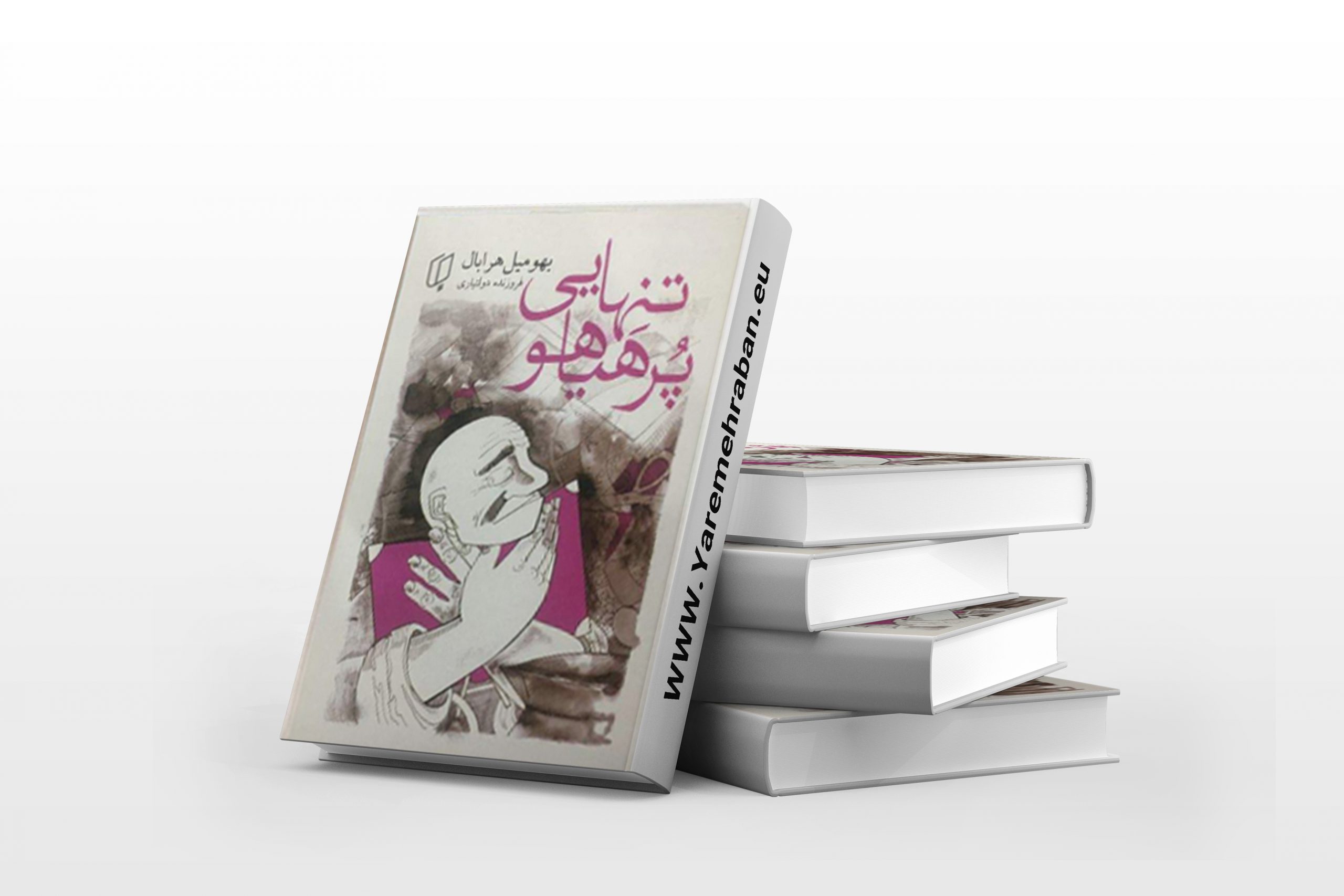
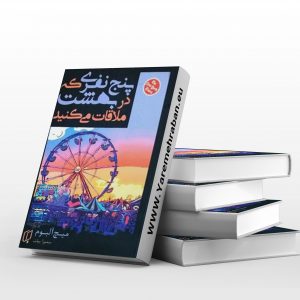
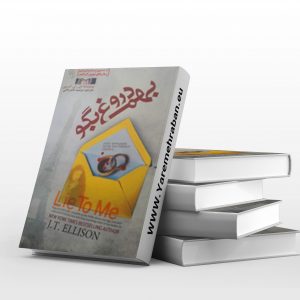
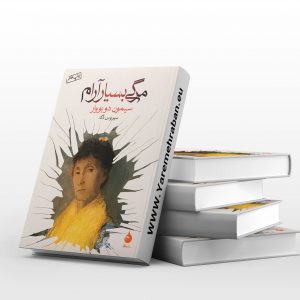
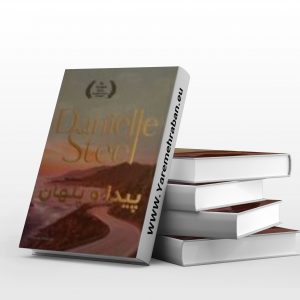
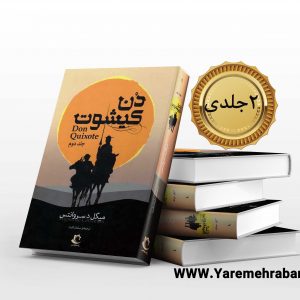
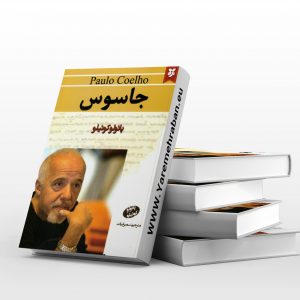

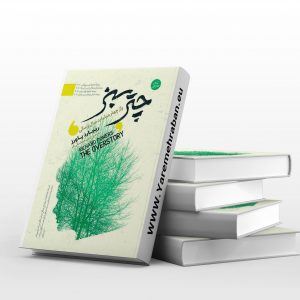
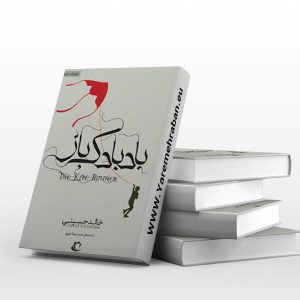
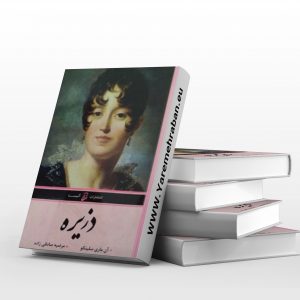
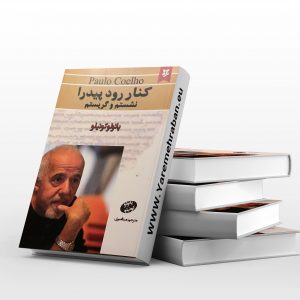
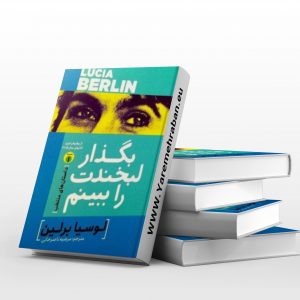
Reviews
There are no reviews yet.